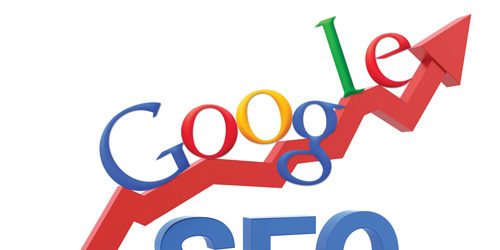
BOOST YOUR SEARCH ENGINE RANKINGS:
Planning
Good search engine optimisation must be built into the website from the word go, so build SEO into the planning stage of your website build or redevelopment. For the majority of websites, we recommend using WordPress.
Keyword Selection
Clever keyword research will ensure that you are building in the words people are searching for rather than what you ‘think’ they are searching for. There are several tools available such as Google’s Keyword Planner (https://adwords.google.com/ KeywordPlanner) or Wordtracker (https:// app.wordtracker.com/) that show you the popularity of particular search terms as well as the number of other pages on the web using the same words. The ‘key’ is to use words that are popular but less featured on competitor websites.
Keyword Use
Once you have selected one or two keywords for each page, it is then important to build these into the structure of the site. Each page should feature the specific keyword in the page title, meta tag, page description, H1 heading, etc. Keywords should also be used within the link url’s (for example, www.yourwebsite. co.uk/keyword).
Content
Content is one of the most important areas in SEO – Google wants to provide their customers with relevant, on-topic, useful web results and so they favour information-rich websites that provide value. Create your content for the visitor so that it reads well – don’t keyword stuff for the search engines.
Internal Links
To help your web visitors (and Google) easily find their way around your website, incorporate internal links around your website.
External Links
The more quality and relevant incoming links from other websites with a high Domain Authority (https://moz.com/ learn/seo/domain-authority) you have coming into your site, the more important the search engines will view your site, so a link building strategy is vital. The more relevant the better (why would you want an incoming link to your shoe retail website from a construction company’s website? Google and the other search engines will find that a little fishy.) Don’t go down the route of cheap link builders – Google see this as cheating and will penalise you.
Analysis & Reporting
Finally, SEO is an ongoing job. The initial work is to generate a top ranking on the main search engines, but more importantly, it is keeping that position once you are there.
Once you have followed the tips to successful search engine optimisation, it can take a few months for the search engines to register any changes. The use of paid for search marketing (Pay Per Click – PPC) will mean you can be visible on the search engines until your natural search engine optimisation kicks in, as well as providing a number of other benefits. More on that next month!
www.smartmonkey.co.uk
beth@smartmonkey.co.uk
@Bethanie_Nash






